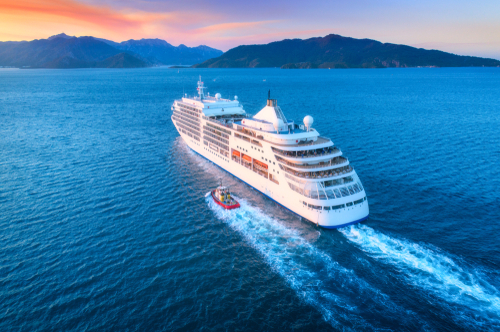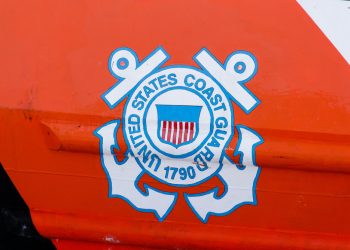USCG issued a policy letter to provide guidance to the Cruise Ship National Center of Expertise and Officers in Charge, Marine Inspection on Coast Guard examination requirements for all foreign cruise ships seeking to resume suspended operations within U.S. ports due to the COVID-19 pandemic.
To remind, as a result of the pandemic cruise ship operations in and from U.S. waters have ceased. Most cruise ships have undergone substantial crew reductions and/or large crew turnovers.
Given the uncertainties of vessel material condition and crew proficiency, the Coast Guard is requiring all cruise ships, including those with valid COCs, to receive a full annual COC examination to ensure machinery and safety systems are maintained in proper condition, and crew proficiency is evaluated prior to resuming passenger operations.
According to the USCG:
It is important to note that issuance of a Coast Guard COC is not the only regulatory requirement that is necessary for a cruise ship to successfully return to passenger operations. The cruise ship must also meet and maintain any applicable CDC or other federal, state, or local government requirements.
- All cruise ships subject to reference (g), intending to resume suspended passenger operations, shall follow the sequencing of the phased approach outlined by the CDC and shall undergo an annual COC examination prior to embarking passengers. The cognizant OCMI will conduct the examination using references (d) and (e) as a guide. Upon successful completion of the examination, the OCMI will issue each cruise ship a Certificate of Compliance (CG-3585) in accordance with reference (b).
- Before conducting any COC examination, the Coast Guard expects a cruise ship to be ready to meet CDC’s “simulated voyage” requirements and be fully staffed for an appropriate period of time to fulfill SOLAS and STCW requirements for crew familiarization, training, and drills. At a minimum, this staffing must meet or exceed what is required on the vessel’s safe manning certificate.
- After a COC exam is conducted, if crews are rotated between cruise vessels and more than 25% of the safety sensitive positions change, then that cruise vessel will be required to demonstrate all crew drills for the COC to remain valid.
- OCMIs should expect the owner or operator to request the COC examination at the same time as the owner or operator submits an application for a “simulated voyage” to the CDC in accordance with reference (g). The COC examination should be conducted prior to the cruise ship undergoing the “simulated voyage” as outlined in reference (g).
- OCMIs should use objective evidence such as survey reports, certificates, or attestations to verify that all Flag Administration and/or RO surveys and applicable technical representative visits are completed prior to the COC examination. Any COVID-19 related alteration that affects a vessel safety system or arrangement should be approved by the Flag Administration and/or RO.
- OCMIs should be aware of vessel changes such as barriers designed to restrict capacity that may block escape paths, additional storage of flammable liquids such as sanitizers and cleaning products, or ventilation modifications.
- Many of the cruise lines plan to implement an alternative passenger muster process. These alternative processes must meet SOLAS requirements for passenger muster and be approved by the Flag Administration and/or RO. OCMIs should request copies of Flag Administration and/or RO approved alternative passenger muster processes upon receipt of each COC examination request. The OCMI shall observe the process, question the crew, and spot check the technology used to ensure crew familiarity with updated procedures and equipment associated with the passenger muster process.
- OCMIs should minimize the need for a follow-on visit to the vessel. If deficiencies are issued during the COC examination, OCMIs should consider remote verification as a means to clear the deficiency. This may include a class report, pictures or video evidence.
- Port State Control (PSC) examination teams are reminded to follow current CDC and Coast Guard guidelines on use of personal protective equipment to prevent the spread of communicable disease while conducting PSC activities. Additionally, prior to conducting a COC exam, Coast Guard units will undergo refresher training as outlined by CG-CVC-2 and the Cruise Ship National Center of Expertise.
Explore the Foreign Passenger Vessel Examination COVID-19 Guidance here






























































